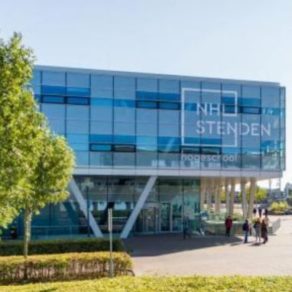Written by Erika Irabor
Edited by Cathy Wielema & Mattia Troiano
This blog post come from the post-summit blog series related to the European Mentoring Summit 2022 which took place last month in Leeuwarden. For that, our Student Lab has interviewed another interesting personality who has been actively involved in mentoring for the past twenty years. Her name is Cathy Wielema, a former English teacher and close acquaintance to Betty Bijvoets (founder of Mentoring Europe & MentorProgramma Friesland). Interestingly, her biggest connection to Betty was their English study. After her study, Cathy started her profession as an English teacher at Friesland College in Leeuwarden – the place where her first mentoring experiences began. And this is how:
The story of how Cathy became a mentor
Some years after Cathy started her teacher’s career, she got her personal office. Not long after this something interesting happened:
Suddenly, “The students started to come into my office and shared personal things,” she said. Now that she opened her doors to students, it turned out that they loved to come to her and express their thoughts, feelings, and daily concerns. And this is how she became a mentor. She was sitting in her office in the language centre doing her regular job as an English teacher, but her role slowly transitioned into a student mentor.
One of her personal principles as a mentor was that the students should be willing to come to her and not be imposed by others. As time passed the word about Cathy quickly spread among other students. People from various school programmes and courses came to her office to… well let’s say officially learn English. But behind closed doors… students were sharing personal things with her. She loved listening and helping them with two ears and few right inputs for reflection.
And here is one important lesson she learnt:
“You can’t help a person who doesn‘t want to be helped”
She could offer help to her students but only after she knew what their problem was. And that required an atmosphere of trust and openness but also the willingness from the students to take the first step in sharing private information.
So we wonder now, what was Cathy’s experience of EMS2022?
Q1: What experiences did you have during the Summit?
Cathy was one of the guests who joined the Summit for just two days and yet this was enough to gain powerful experiences. She said: ‘It was a vibrant meeting people were enthusiastic, each and everyone I met was positive‘. She enjoyed the kindness of people, multicultural atmosphere, and insightful discussions.
“Right from the start I got there people easily made contact, and a lot of interaction between both the workshop hosts and workshop attendees took place”. She admired the fact that participants openly discussed WHAT they have learned and HOW they think about it.
Example:
Cathy attended three workshops with totally different approaches. On Thursday one workshop given by the International Women Centre on women who never learnt how to read and write, while the other workshop that day by the Copenhagen office of KVINFO’S Mentor Networks mainly focussed on how to help their clients find their way in the Danish working environment.
On Friday, she attended the workshop by Jean-Marie Molina Schmidt on metacognitive motivation.
Q2 What are your most interesting insights?
Cathy’s most interesting insights are a continuation of the experiences she made.
Even if there were discussions between people who did not agree, they always concluded on a positive note. ‘I have not seen any people going away and shaking their hand like this was nothing. Different opinions could be discussed and, in the end, there could agreement on.”
Mentoring was the umbrella under which all the workshops are given. People from different countries had different approaches to mentoring. So, to her it was insightful to spot the different ways people see mentoring which were new to her.
Even for Cathy being a senior mentor there were still new things to learn.
Q3: What are your main take-aways?
- Some ideas were new and refreshing
- The catering was lovely – the food variety represented the variety of participants
- Cultural differences can be easily misunderstood – e.g as the workshop ‘Mentoring in a Cold Climate‘ made clear to Cathy, the term “immigrant” is interpreted differently in Denmark compared to the Netherlands.
- The same workshop also opened her eyes to new mentoring approaches.
- Sometimes you think about how things work until you learn a new method.
Q4: What surprised you the most?
Moving on to the last question, Cathy shared her thoughts on what surprised her the most during the Mentoring Summit, namely that:
- The venue was highly appreciated by many participants. The guests were amazed by the NHL Stenden building. Some people told her ‘It feels like a company‘.
- There was a common desire between people coming from different backgrounds. Everyone came with a purpose and all got together with the same mission.
Even if Cathy joined the Summit just for two days, she learned a lot and was delighted to interact with people coming from different nationalities.










